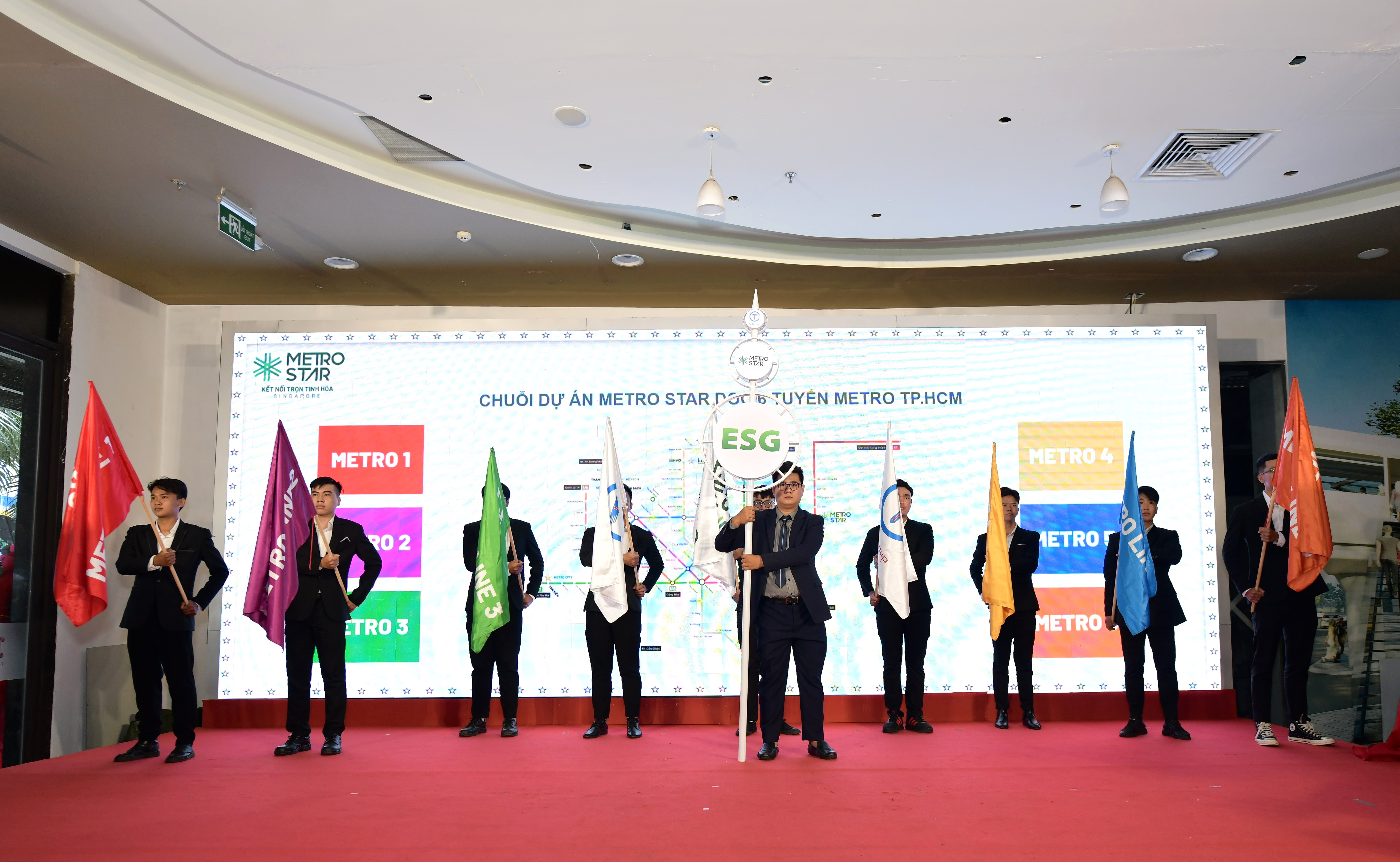The Metro Star company is regarded as an icon of the ESG Company, receiving high international acclaim for its sustainable development strategy with an esteemed international ESG council.
In Vietnam, the ESG framework is relatively new and might leave many businesses feeling uncertain. However, Metro Star has swiftly adopted and excelled in green and sustainable ESG standards, becoming a symbol of ESG Company.
Metro Star has a high-level focus on the Green TOD (Transit-Oriented Development) model, an advanced global approach aligned with climate change and the Net-zero strategy, which aligns well with the city’s direction outlined in Decree 98. With a chain of over 50 projects developed alongside major train stations along the six metro lines of Ho Chi Minh City, Metro Star is promoting the use of eco-friendly public transportation, such as electric trains, for commuting throughout the city. The model calculates that each project will reduce 50% of cars and motorcycles within its vicinity, averaging around 1,000 motorcycles and 100 cars reduced per project. This reflects the company’s long-term vision, aligning its development strategy with the global trend toward Net-zero, in tandem with policies promoting public transit systems like electric trains/metros, ultimately reducing CO2 emissions.
Metro Star is not only incorporating Singaporean design standards into their upcoming projects, guided by reputable consulting firms renowned for their expertise in green design from Singapore, but they have also pursued registration for IFC Edge standards. This certification, offered by the International Finance Corporation, is for green construction in emerging markets. This step ensures that the designs implemented in the company’s development projects adhere to international standards in green design.
Moreover, Metro Star calculates and ensures that their construction activities are environmentally friendly and align with green building practices. This comprehensive approach across design and construction underscores their commitment to sustainability and aligning their projects with globally recognized green standards.
(1)_20231128042034879.jpg)
Mr. Vu Hong Quang, Chairman of Metro Star, shares about the ESG model
The green development direction of Metro Star aligns perfectly with the global trend in addressing climate change. In today’s world, where the conversation around climate change is constant and the process of adaptation is crucial, Metro Star is in sync with the pulse of the times in a rapidly changing world. Alongside their focus on Green TOD development, green design, and sustainable construction, Metro Star implements various clean energy sources such as wind and solar power to replace conventional energy sources. This integration goes hand in hand with the 3R solution (Reduce, Reuse, Recycle), aiming to minimize waste and optimize resource usage.
Moreover, their participation in emission reduction programs like Green Star demonstrates their commitment to sustainability and reducing their carbon footprint. By adopting these strategies, Metro Star showcases a proactive stance in keeping up with the global imperative of addressing climate change.
“We aspire for Metro Star to introduce the ESG model to the public as an exemplary reference, a platform to share experiences and collectively build upon. This aims to calculate how Metro Star’s projects developed alongside metro lines will encourage the community to opt for electric transportation, reducing emissions from personal vehicles. Simultaneously, this includes extensive social initiatives and transparent corporate governance following international standards, audited by the Big Four and evaluated by leading international organizations. This constitutes a chain of sustainable development values,” shared Mr. Vu Hong Quang, Chairman of Metro Star.

Metro Star is developing green and sustainable ESG standards alongside the strategy of developing a Green TOD project chain along six metro lines.
Metro Star not only brings a new perspective on ESG business models to the market but also provides significant experiences for major clients by committing substantial returns based on the development foundation along the six metro lines. In the upcoming period, Ho Chi Minh City will expand its metro system to include several additional lines, increasing the total to 11 lines connecting all 24 districts within the city. When the entire metro system interconnects and links with other transportation hubs like Long Thanh Airport, high-speed trains to the Western provinces, and integrates air, water, and land transportation, it will create a seamless transportation network. This will be a significant driver in boosting property values adjacent to the metro lines.
In countries like Japan, Hong Kong, South Korea, Singapore, real estate prices are measured by the distance to metro stations. The shorter the commute to the metro, the higher the property value, and vice versa. This serves as the foundation for Metro Star’s commitment to assisting major clients in multiplying their returns, progressing toward prosperity in the journey of sustainable development alongside Metro Star.




